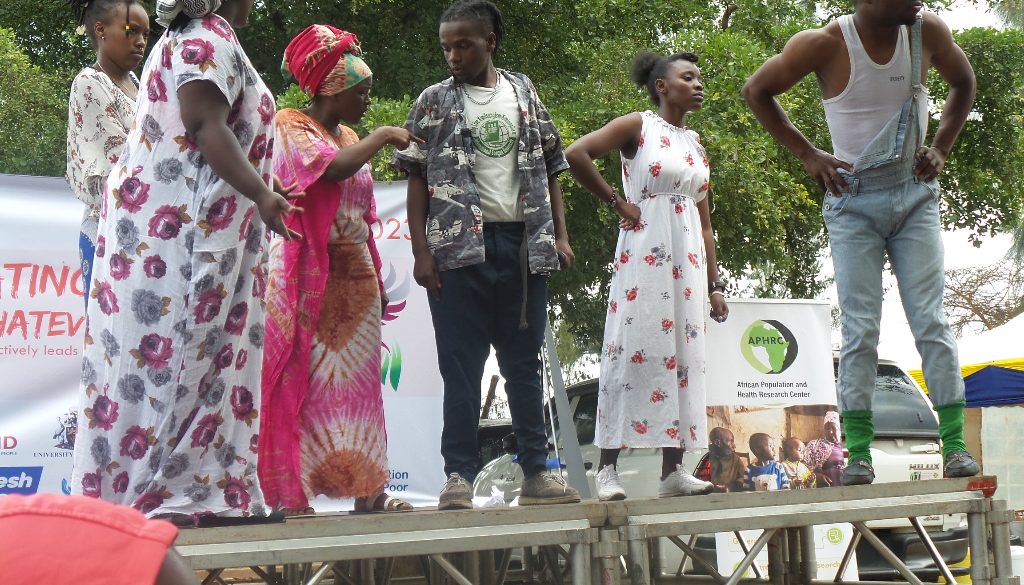IMPACT STORY: Responding to water, sanitation, hygiene and solid waste management challenges in Nairobi’s informal settlements
Authors: African Population and Health Research Council (APHRC), Kenya with the ARISE Consortium
Improving Water Sanitation and Hygiene (WASH) and Solid Waste Management (SWM) practices and access was a key focus of ARISE work by the African Population and Health Center (APHRC) in Nairobi.
Background
Providing WASH services in informal settlements is a challenge. Clean water often costs more in informal settlements when it is provided by intermediaries, reducing the amount of water people can afford for handwashing. With a lack of space, residents often rely on shared communal toilets, which can increase transmission risk through surfaces and can be hard for pit emptiers to de-sludge when full. SWM is the collecting, treating and disposing of solid material once it has been discarded. SWM is a challenge in informal settlements because: absentee landlords flout development control orders; inadequate storage containers; indiscriminate disposal by households; unreliable collection by county government; low household incomes; and limited public education. Furthermore, access to WASH and SWM has an equity component. The elderly often have problems accessing water in informal settlements where water points are distant. People have to queue to get water, so they may have to pay someone to go to fetch water for them. People With Disabilities (PWDs) can find it difficult to access toilets. Women and youth are largely responsible for household WASH management and bear a disproportionate burden when these basic services are lacking.
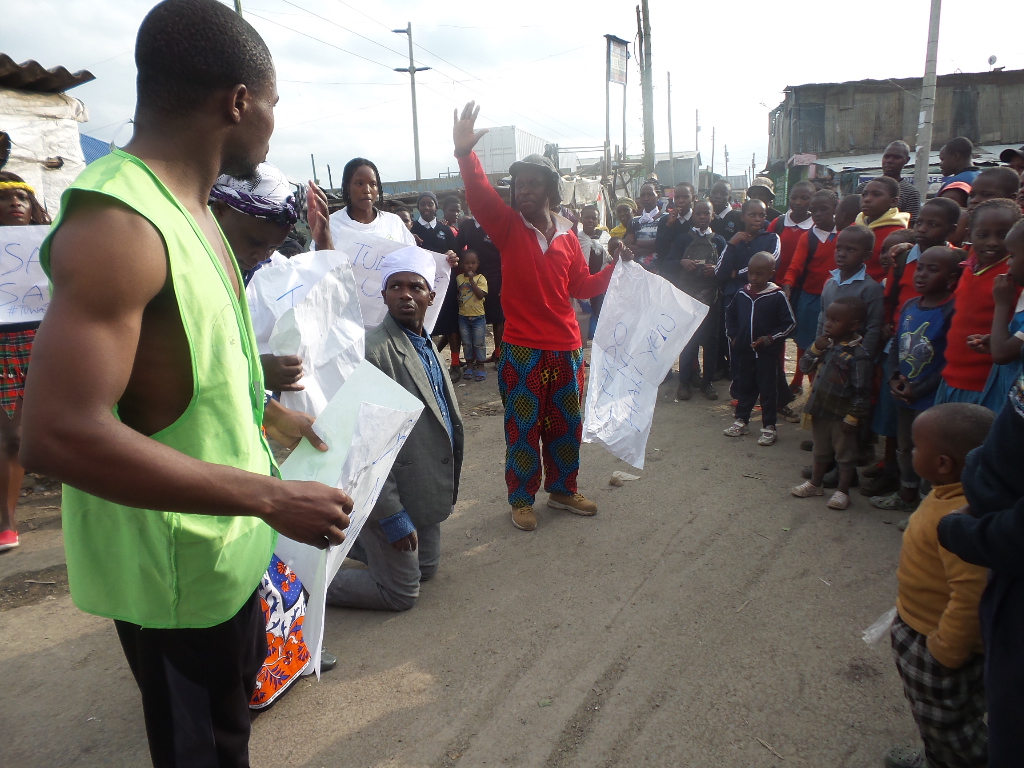
What happened?
Catalysed by the ARISE Responsive Fund, in Viwandani APHRC partnered with U-Tena, an NGO that works to promote health and wellbeing through the exploration of performing arts and dance. There were a series of high-level consultation meetings with partners that resulted in collaborations with Child Fund and the Winnie Atieno Foundation in addressing challenges related to SWM and WASH services. The project engaged the community, government officials, nongovernment officials, performing artists, youth, women, land owners, local partners, and elected leaders in advocating for SWM and WASH services. Consultative meetings set a clear path for community outreach, stakeholder meetings, dialogues, artistic outreach, and committee consultative forums. From the consultative meeting process, we collaboratively identified the need to construct a solid waste collection and separation transfer station at the community level. This decision was validated by the community and solid waste workers, building consensus.
Community outreach was conducted with performing artists from June to September, 2023. The artists did a series of crowd moving performances with key messages on WASH and SWM. Together stakeholders collaboratively identified a SWM separation point. ARISE established an oversight committee including the senior chief, assistant chief, WASH and Health sub-county representatives, a ward administrator, village chairperson, youth representative, community health promoters, community-based organisation (CBO) representative, landowners, and representatives of persons with disabilities. Through dialogues, a marathon event and activities on Global Handwashing Day, people were informed of and educated about WASH and the SWM separation point.
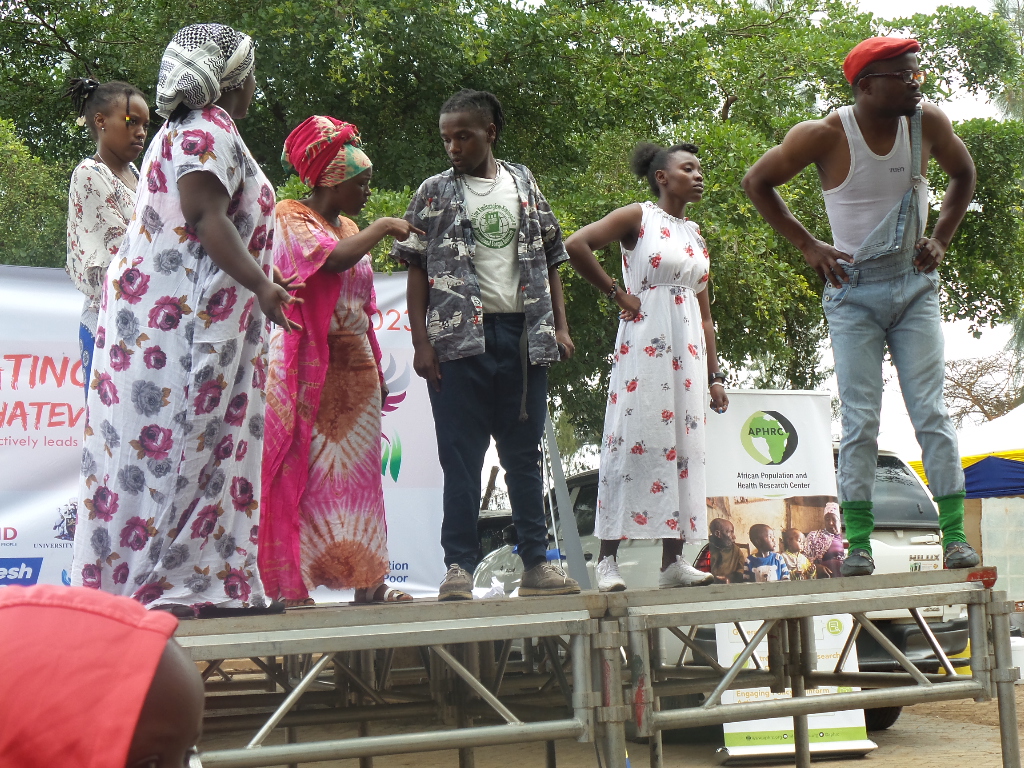
Impacts
As a result of this intervention a common solid waste separation site was co-identified, co-validated and operationalized within Viwandani informal settlement and governance structures have been put in place to champion, advocate and support its use.
Through ARISE, the governance actors were made aware of the importance of responding to community needs. Community-Based Participatory Research (CBPR) processes improved accountability by bridging gaps between communities, researchers and policymakers. It also built and strengthened relationships between urban marginalized people and governance actors by creating new fora for connections and strengthening existing spaces for engagement between governance and community stakeholders.
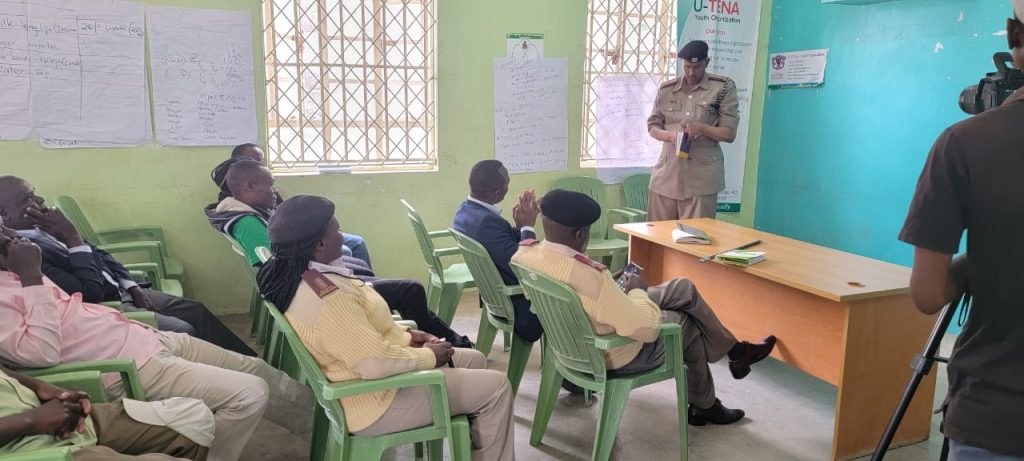
Community dialogues
Lessons learned
- Partnership is key in SWM and WASH: Key outcomes and activities would not have been achieved without collaboration and networking.
- Magnet Theatre: The arts, particularly the use of theatre and visual arts, are a strong tool for awareness creation and engaging the community. Feedback is solicited and amplified hence the community is not only a consumer of information but also a generator of the same. It also gives community an opportunity to participate in addressing the challenges they are facing.
- Key community focal persons: Identification and involvement of key focal persons is key in the success of any community initiative. Their understanding and willingness to support determines the success or the failure of the project.
- Multi-disciplinarity at the local level: When community leaders in different fields/areas work closely together, it becomes possible and easier to identify a key challenge and seek solutions. Working closely, the leaders can begin to address the issues in the community at their level before they escalate to higher levels.
- Community empowerment and accountability: When a community is empowered, they demand their rights. For example, the community was demanding quality living conditions and a clean environment from landowners, elected leaders, and local partners through U-Tena and other CBOs.
- Responsiveness: The local stakeholders led by local political leaders and partners took the initiative to allocate space for waste collection points, expand the road network with proper drainage, and promised to bring affordable water to Viwandani.
- Inclusion is key: All stakeholders from the community, national government, and county governments were engaged in discussions on SWM and WASH. This enhanced the uptake of implementation.
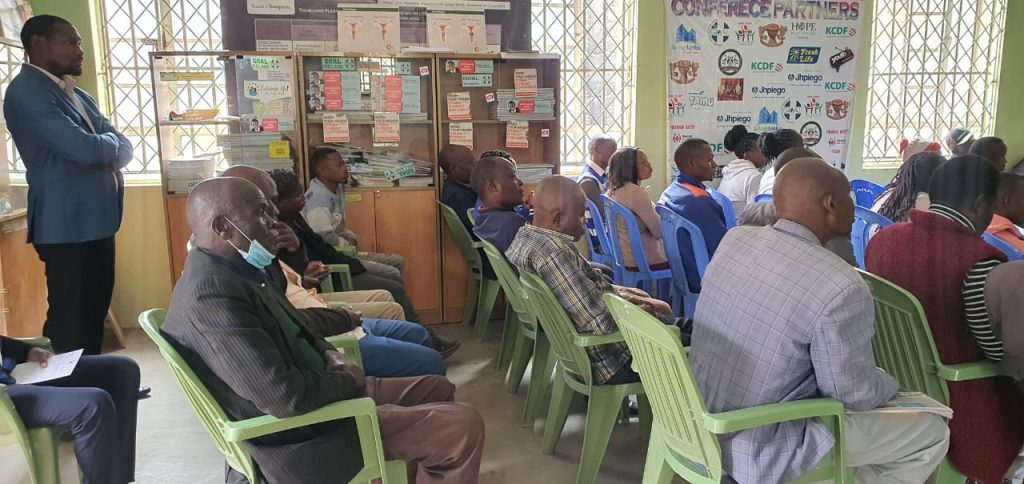
Formation of community committees
What’s next?
- There is a need to continue supporting the community in reaching out to their leaders, where they can raise issues of concern.
- SWM actors should collaboratively develop a long-term waste management plans that account for population growth, urbanization trends, and environmental sustainability.
- There is a need to consider integrating informal waste pickers into formal waste management systems to improve livelihoods and resource efficiency.
- There is a need for actors in SWM to invest in infrastructure such as waste collection points, transfer stations, and recycling facilities tailored to the specific needs and constraints of informal settlements.
- Actors in the WASH sector should be involved in addressing SWM, as poor SWM affects WASH service delivery.
References
ARISE consortium (2024) Brief: Working with U-Tena youth organization to address solid waste management
Acknowledgements
Thank you to Anthony Mwaniki, Louise Clark, Sweta Dash, Kate Hawkins, Nazia Islam, Jiban Karki, Nicholas Kyalo, Peter Mokaya, Leah Murphy, Anthony Mutuku Nthenge, Emilly Otieno, Hayley Stewart, Jackline Syonguvi, Joe Taylor and Sia Tengbe for developing and editing this output.
